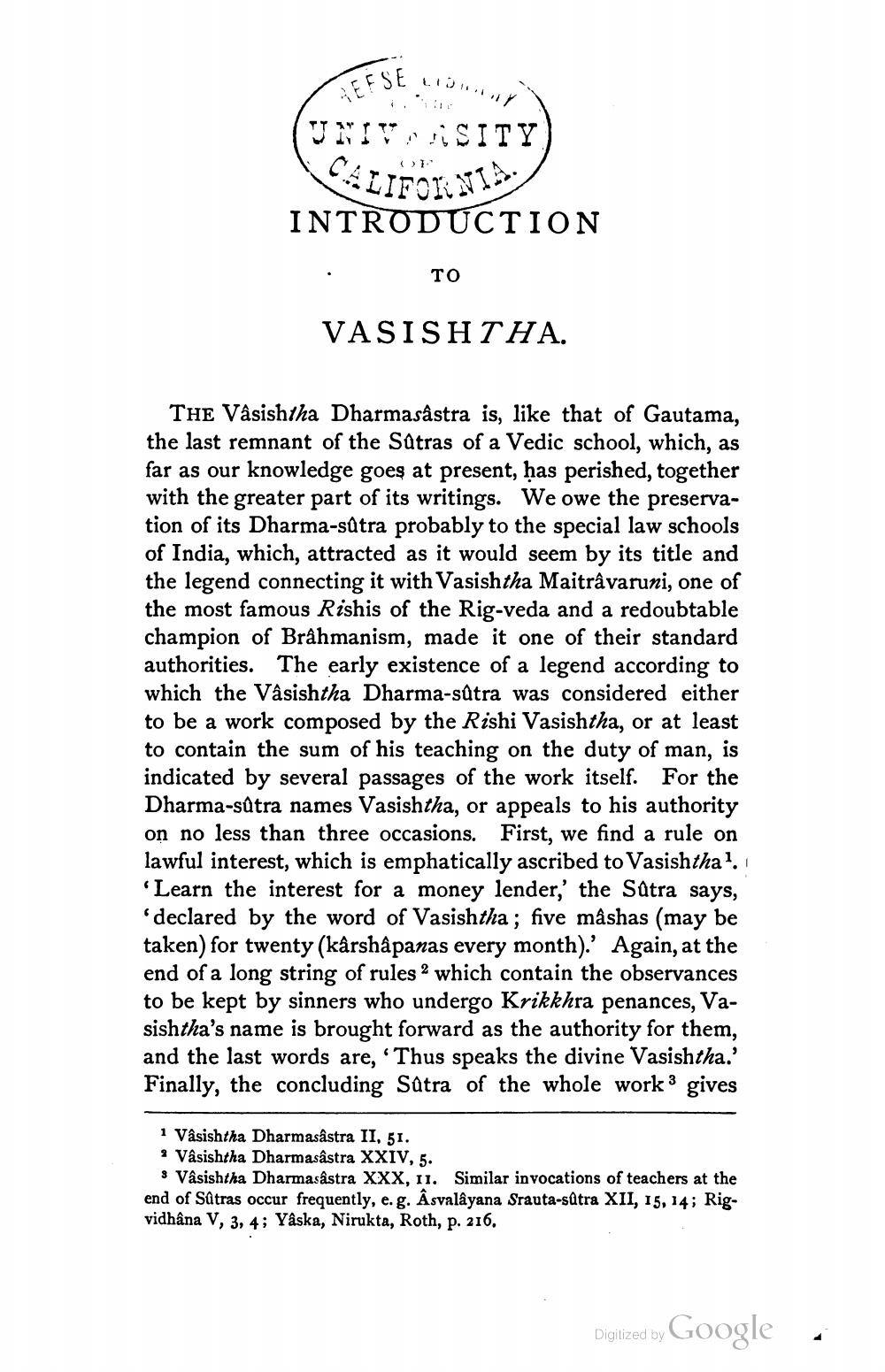________________
REFSE
LIDL
UNIVASITY
CALIFORNIA
INTRODUCTION
ΤΟ
VASISHTHA.
THE Vâsishtha Dharmasâstra is, like that of Gautama, the last remnant of the Sûtras of a Vedic school, which, as far as our knowledge goes at present, has perished, together with the greater part of its writings. We owe the preservation of its Dharma-sûtra probably to the special law schools of India, which, attracted as it would seem by its title and the legend connecting it with Vasishtha Maitrâvaruni, one of the most famous Rishis of the Rig-veda and a redoubtable champion of Brâhmanism, made it one of their standard authorities. The early existence of a legend according to which the Vâsishtha Dharma-sûtra was considered either to be a work composed by the Rishi Vasishtha, or at least to contain the sum of his teaching on the duty of man, is indicated by several passages of the work itself. For the Dharma-sûtra names Vasishtha, or appeals to his authority on no less than three occasions. First, we find a rule on lawful interest, which is emphatically ascribed to Vasishtha1. 'Learn the interest for a money lender,' the Sûtra says, 'declared by the word of Vasishtha; five mâshas (may be taken) for twenty (kârshâpanas every month).' Again, at the end of a long string of rules 2 which contain the observances to be kept by sinners who undergo Krikkhra penances, Vasishtha's name is brought forward as the authority for them, and the last words are, 'Thus speaks the divine Vasishtha.' Finally, the concluding Sûtra of the whole work3 gives
1 Vâsishtha Dharmasâstra II, 51.
2 Vâsishtha Dharmasâstra XXIV, 5.
9 Vâsishtha Dharmasâstra XXX, 11. Similar invocations of teachers at the end of Sutras occur frequently, e. g. Âsvalâyana Srauta-sûtra XII, 15, 14; Rigvidhâna V, 3, 4; Yâska, Nirukta, Roth, p. 216.
Digitized by Google




